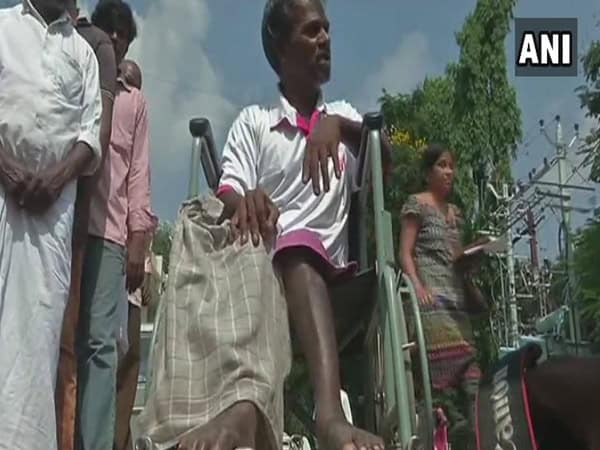Coimbatore (Tamil Nadu): A 45-year-old man from Coimbatore has sought permission from the State government for euthanasia and offered to donate his organs for the needy.
The man, who worked as a painter, had fallen down from a building, after which his lower body stopped functioning.
Earlier in October, the Supreme Court reserved its verdict on ‘living will’ in cases of passive euthanasia.
The petitioner in the case argued before the court that the right to die peacefully was part of right to life guaranteed under Article 21 of the Indian Constitution.
A five-judge constitution bench of the top court, headed by Chief Justice Dipak Misra, was hearing the case.
Earlier, the Centre opposed the living will in “passive euthanasia” case and told the apex court that it could be enormously misused.
The court had in February 2014 referred to a Constitution bench a plea favouring voluntary passive euthanasia or mercy killing in cases where a person is suffering from a terminal illness and has no chance of revival and recovery as per the medical opinion.
How is ‘living will’ defined?
Living will explains a situation whether or not a person wants to be kept on life support if he/she becomes terminally ill and will die shortly without life support, or fall into a persistent vegetative state. It also addresses other important questions, detailing a person’s preferences for tube feeding, artificial hydration, and pain medication in certain situations. A living will becomes effective only when a person cannot communicate his/her desires on own.
What is “passive euthanasia”?
The term “passive euthanasia” is defined as the withdrawal of life support, treatment or nutrition with the deliberate intention to hasten a terminally ill-patient’s death. (ANI)
Partially paralysed man seeks permission for euthanasia

